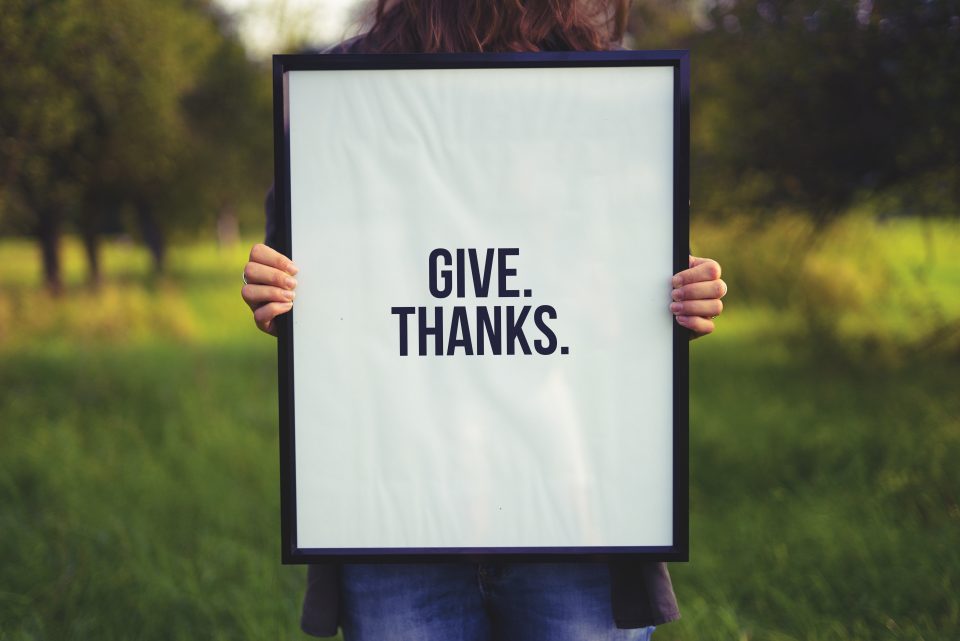As I’m writing this post, it’s Thanksgiving Day in the U.S. and tomorrow is “Black Friday”, the biggest single retail sales day in North America. Between now and the end of the year, it will be virtually impossible to avoid advertising designed to persuade us to buy “stuff” for both holiday gift giving and for our own benefit.
“Retail Therapy” is what some people call it. Buying stuff hoping that doing so will elevate our mood and bring pleasure to our lives. And yet the common experience is that any happiness derived from material purchases is only short-term.
I’m bringing this up because we’re entering the holiday season. For many, it’s a time of year where the pressure to spend money is ENORMOUS. And not just on gifts, but on decorations, clothes for office parties, travelling to visit family, or taking a winter vacation. Peer pressure, that feeling you have to “keep up with the Joneses” adds another layer of expectation to spend money.
It’s easy to get the impression that spending all of this money is normal leading people to spend more than they can afford. Credit cards get maxed out and much of the next year is used to pay them off only to repeat the pattern again in December.
Holiday Spending & Widows
As a widow you can face additional pressures during the holiday season, especially the first year after losing your spouse. The holidays won’t be the same without your partner.
This is where retail therapy can seem like a quick way to boost your spirits. It’s true spending money on others can elevate your mood. For a widow it’s easy to do, especially if you have young children. Knowing the kids will miss their father, you may want to spend extra money on gifts — perhaps more than you can afford — as a way of compensating and easing your children’s sense of loss over the holidays.
In relationships where there aren’t children, or the children are adults, it’s still easy for a widow to spend extra money. It’s not unusual for a recent widow to perceive money as meaningless to her and literally give it away through expensive gifts or giving cash to other family and friends.
I completely understand how money can seemingly lose its importance after the death of your spouse. But as time goes by, you may find yourself recognizing that you were spending excessively and being overly generous to others in an attempt to soothe your own feelings of loss.
So as we move into this season, take some time to think about how you can prevent this from happening. Make a plan to manage your spending in a manner that will on one hand be fulfilling for you, but on the other hand not leave you experiencing regret about high charge cards or a bank account deep in overdraft. I encourage you to do your best to avoid falling under the spell of the siren songs played by TV and internet ads.
Adopt an “Attitude of Gratitude”
You may have read about the recent trend towards turning away from materialism and embracing minimalism. I’m not sure you need to go that far, but a good starting point is simply taking stock of what you already have and can be thankful for.
There is a growing body of evidence that living a life where you intentionally take time to think about all you have to be grateful for leads to a variety of positive results, including your own financial success.
Psychologically, expressing gratitude helps by interrupting what is clinically referred to as “depressive rumination”. This is when you find your mind cycling through the negative things in your life over and over. In essence, expressing gratitude is a cognitive behaviour technique you can use to break out of any negative funk you find yourself in.
Here’s an easy way to focus on gratitude this holiday season. My sister Ruth, along with a couple of her friends, put together a Facebook page called “An Advent of Gratitude”. I’m sure you’ve seen advent calendars designed for kids where each day they can open a little box and find a small chocolate treat.
The Advent of Gratitude calendar is a reversal of the traditional approach. Rather than receiving a small treat, each day you take stock of something you probably take for granted, yet should be grateful for. While doing this inventory, you’re encouraged to set aside small amounts of money — 25¢, $1, $2 — for each notion of gratitude.
By the end of the 24 days, you’ll have a small amount of money set aside which you can then donate to a charity of your choice. You’ll be helping others through your own expression of gratitude.
As you read through the calendar, think about other simple things in your life that you are grateful for. Doing so can help beat the down blues and help you focus on things more important than material possessions.
You may just find that adopting an “attitude of gratitude” will indeed make 2018 a happy and prosperous New Year.
Photo Credit: Thanks to Simon Maage on Unsplash

